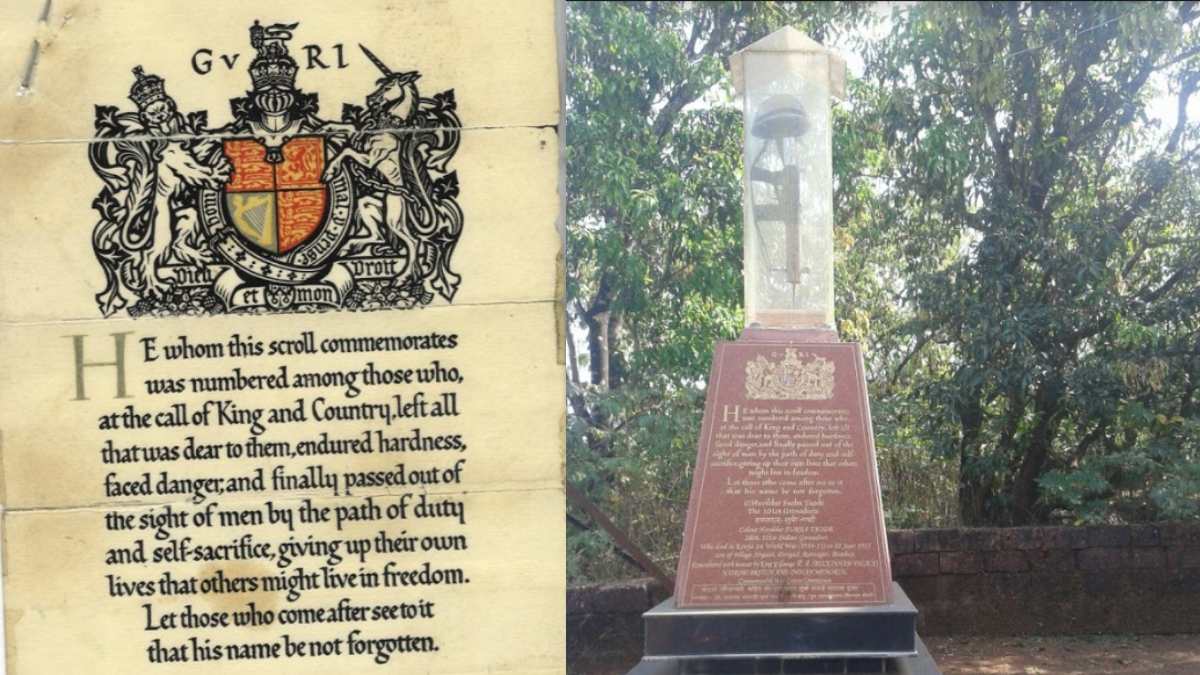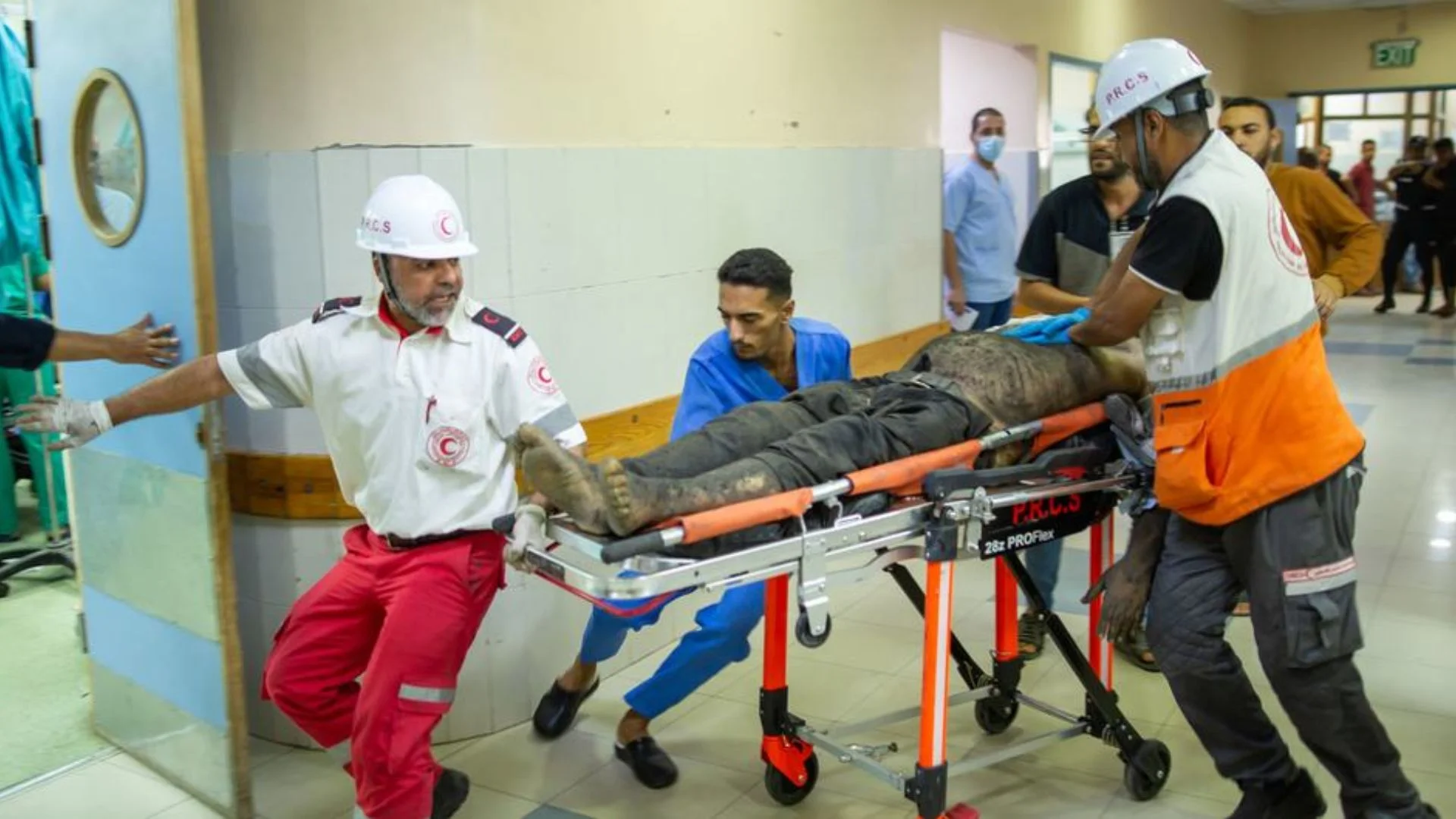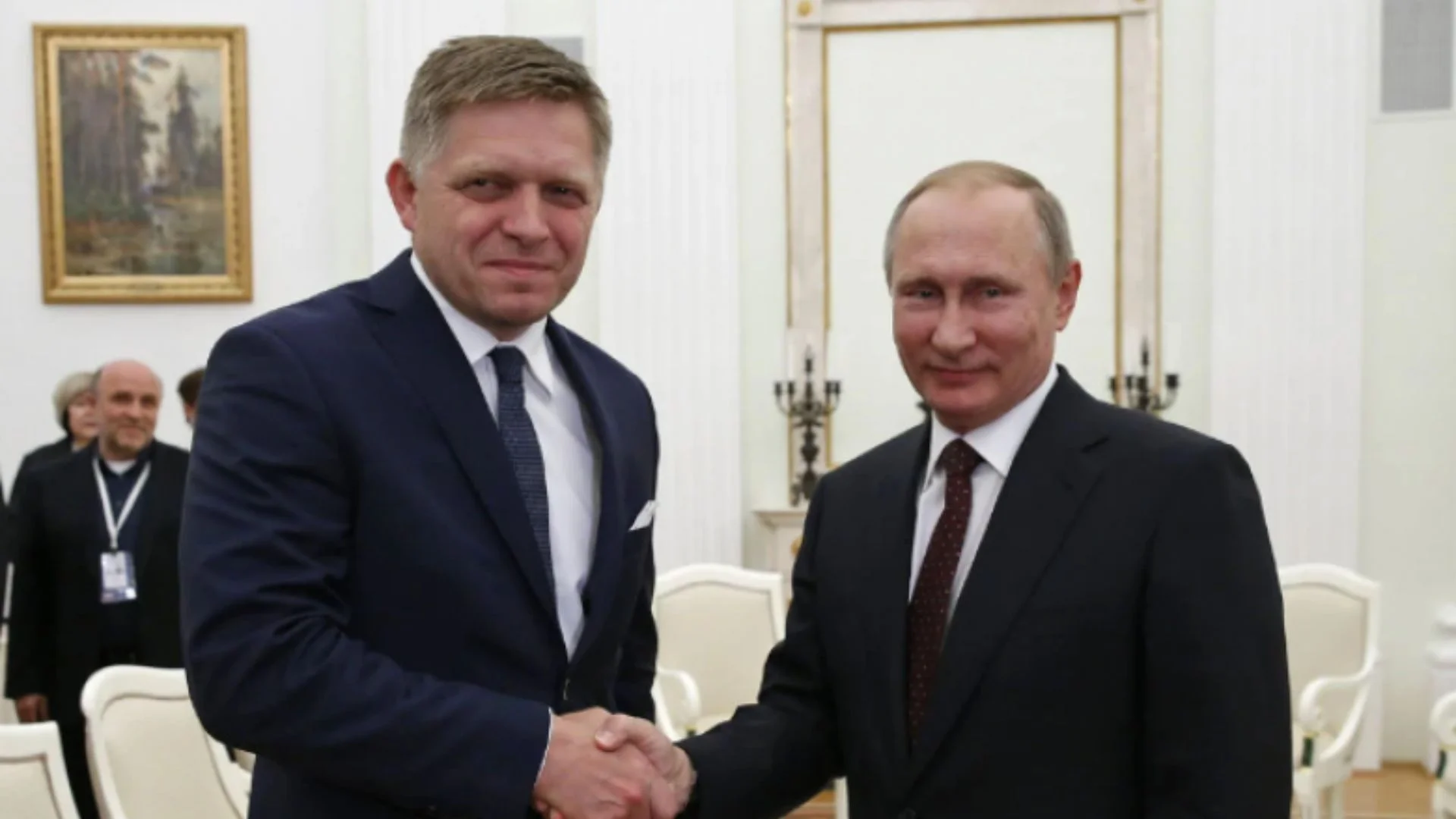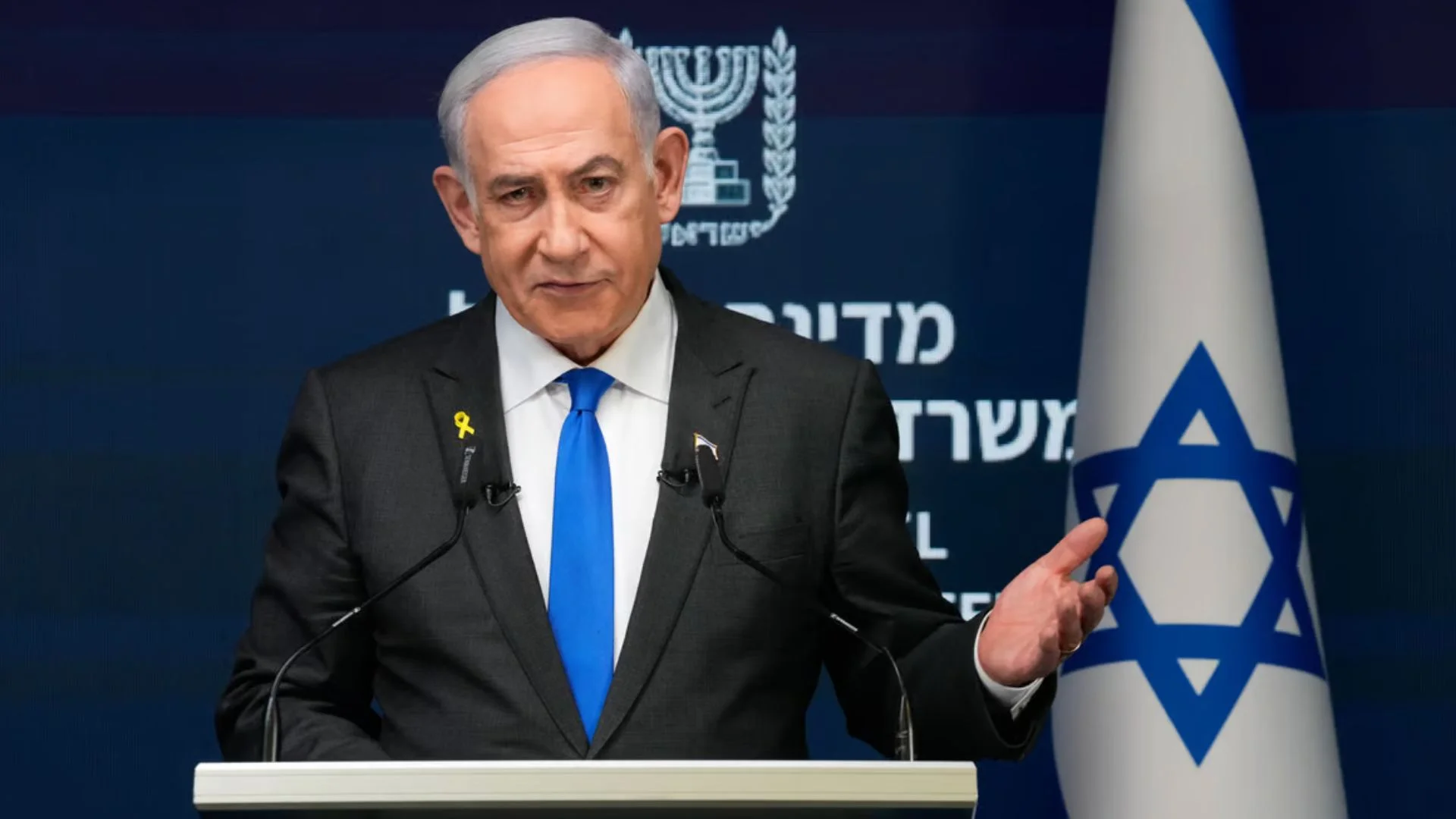Today, 28 July, we observe the anniversary of commencement, in 1914, of World War 1 that went on till the end of 1918. Also called ‘The Great War’, it had a profound impact in many parts of the world, including, also, in leading to the Second World War, barely two decades later. These two wars, fought in the first half of last century, saw massive Indian participation. WW 1 witnessed almost one million Indian soldiers involved, with nearly 75,000 laying down their lives. In the Second World War we contributed close to 2.8 million volunteers, of whom nearly 90,000 were battlefield casualties. Sadly, Indian involvement in these epochal events has, by and large, been ignored due to a variety of reasons. However, there have been some encouraging instances in last few years, especially while commemorating the centenary of WW 1 and 75 years of WW 2, when government agencies and dedicated individuals have sought to highlight Indian stories and participation. This is one such human story of WW 1. It is also the story of a great grandson’s search for his great grandfather’s legacy. This author had a small part to play in it. Please read on.
The account begins in end of 2009 in the High Commission of India (HCI) in Nairobi where I was posted as the Defence Adviser with Kenya, Tanzania, Seychelles, Eritrea and Somalia as my area of responsibility. I had, few months earlier, returned from a trip to Asmara, Eritrea, where the sight of a lone Indian sailor’s grave at the Commonwealth War Graves Cemetery (CWGC) had occasioned much curiosity and an article for a Navy journal. Earlier that year, at Nairobi, I had also taken part in the Remembrance Day commemoration on 11 November and the Gallipoli Day commemoration on 25 April and wondered why Indian participation in WW 1 and in the Gallipoli campaign was unknown to almost everyone around including Indians in East Africa. In December 2009, an email landed at my desk, seeking details of a person’s whereabouts in Africa. Normally, this was an affair for the Consular Section in the Mission but my High Commissioner knowing my passion for the subject of ‘war dead’ promptly sent it to me for action.
The somewhat incoherent email from one Kiran Tawade in India sought the details of his great grandfather Surba Tawade (Tode) who had apparently passed away in World War 1 and whose commemoration stone was ‘somewhere in Nairobi’ as per the details available to him from the CWGC registry. I had a dynamic colleague in the Mission’s Assistant Welfare and Protocol Officer (APWO) Shri Arun Kumar, who too was a history enthusiast, to help me. We scouted all around the picturesque Commonwealth War Graves Cemetery on Ngong Road in Nairobi, but to no avail — there was no mention of Surba Tode. Just as we were giving up, we learnt of another Cemetery, a separate small British Indian Memorial, right off the Airport Road, next to the Moi stadium.
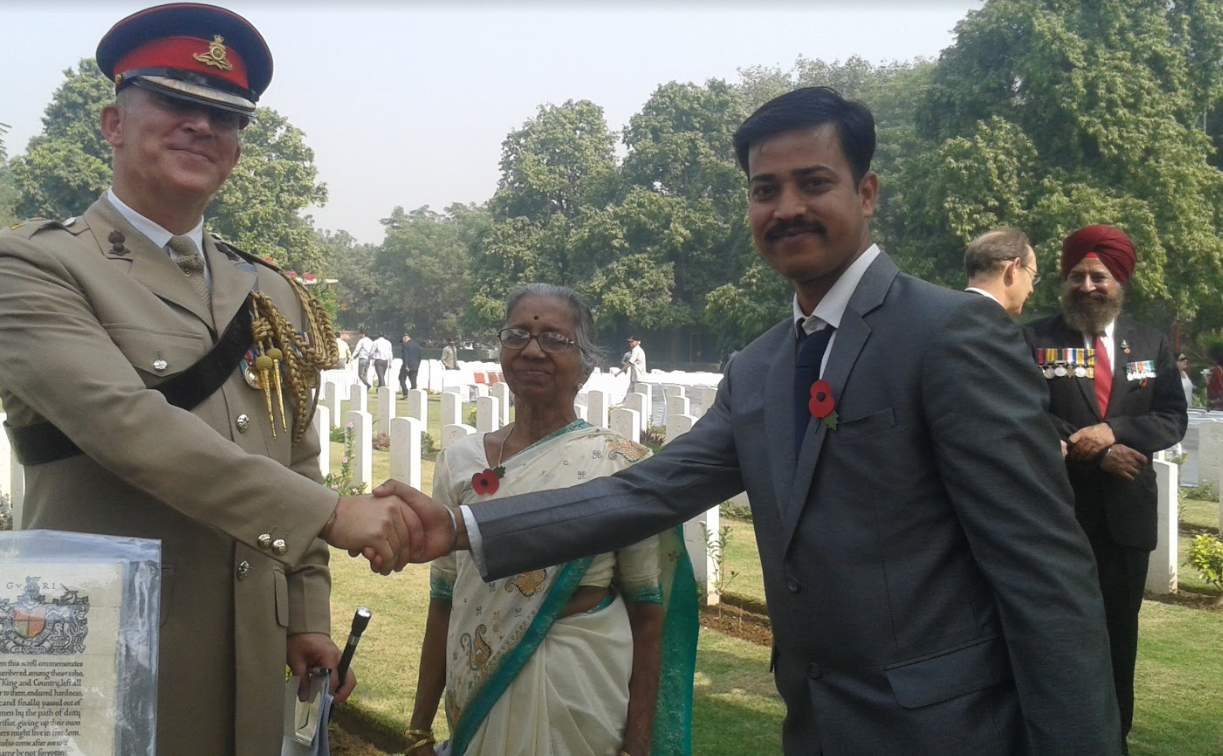
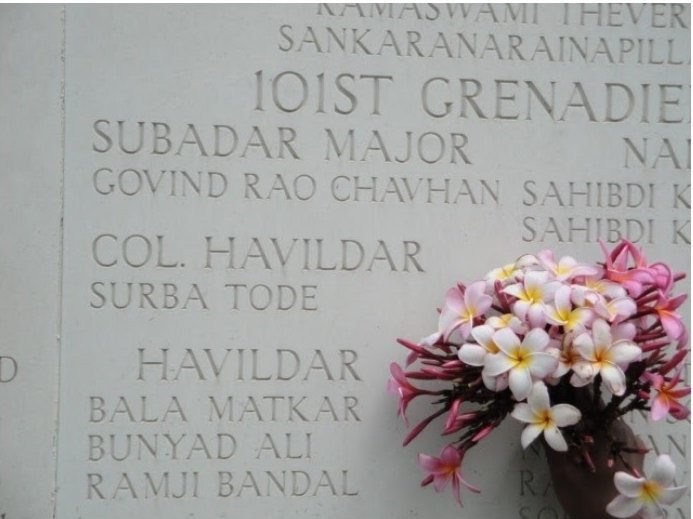
Arun and I visited the place, it was eerily quiet and nobody was there save the caretaker. While it was somewhat shabby compared to the main CWGC, the graves were neatly maintained. This was a different kind of memorial. While the Muslim and Christian Indian soldiers had specific burial stones, Hindus who had been cremated were remembered in the form of a memorial wall with their names etched on them. And there we found the name of Col Hav Surba Tode, of the 101 Grenadiers Battalion. We learnt that he had died on 5 June 1915 before the advance to Rufiji in East Africa. Arun had been prescient enough to carry flowers; we conducted a quick informal memorial service and took photographs of the memorial stone which we emailed to Kiran Tawade.
I thought that was the end of the matter but a few days later I received a call from Kiran. He was an inspector in Indo-Tibetan Border Police (ITBP) and his first few minutes were a mixture of blabber, excitement and emotional outpouring. I calmed him down and asked him to explain again. “Sir, I cannot believe what you have sent. It is such a thrilling moment for my family and me. For years I had been wondering about my great grandfather and now you have given me this great news that he is commemorated in Nairobi”. Then, he went on to relate his story.
It begins in the 1870s when the subject of this story, Surba Tode (also spelled Tawade), was born in Shirgaon village of Devgarh Taluk in Ratnagiri district of Maharashtra. As was the practice those days he married early. He was tall, well-built and handsome and had the reputation of being a happy, fun loving personality but did not have a regular job. Possibly realising the need for means of livelihood as well as wanting to have a life of adventure and travel, he volunteered for the Army, sometime around 1892 and was recruited in 101st Grenadiers battalion of the British India Army.
However, it was not a decision that went well with his larger family or wife Draupadi. As it happens, Military was not a very popular profession in the coastal Devgarh region unlike in interior Maharashtra like Pune, Satara, Kolhapur which has a rich tradition of soldiering. In fact, in this place, like in many parts of India, there was a shade of infamy to soldiering as the stereotype was that they often took to bad habits like drinking, smoking and even womanising owing to their being ‘far away’ from wives.
Army life implied Surba rarely stayed in touch with his wife except for an odd letter or the visit on annual leave. A son, Maruti, was born in 1906 but Surba saw him on very few occasions. When war happened in 1914, his unit was deployed in East Africa where he died in the course of the campaign. Back home, there was very little news of Surba. One can imagine the state of posts and telegraph in small Indian villages. Rumours swirled of him missing or being killed or his running away. Nobody was clear, nobody knew and nobody in that clan knew whom to ask. Other rumours suggested that he had deliberately staged this to desert his wife. Some others implied that he had joined a travelling troupe or some other itinerant team never to return. As Kiran explains “he came to be considered a bhagoda, a fugitive”. He was condemned as an arch villain who had left his wife and family and hence was not deemed respectable. While Surba had died ‘fighting for the King and the Country’ he had become a persona non grata in Shirgaon.
His wife and young son Maruti Tawde, thus, went through great deal of suffering. Draupadi, an illiterate young woman, was subject to great humiliation and, given the unfortunate social atmosphere at that time, held responsible for the fate that befell her husband. On the one hand she was subject to unwelcome advances and propositions, on the other she was routinely insulted and mocked. When it was suggested to the young Draupadi that she must shave her head as a widow, she ran away with her little son to live on the outskirts subsisting with people who lived in the margins of society’ and often living on ‘roots or shrubs’. In short, they became outcastes in their own village.
Therefore, she missed out on the pension and other benefits that the government bestowed on the family — as all of this was delivered at the home address of Surba. The only thing that the other family members handed out to her was a scroll signed by King George V. That scroll acknowledged the death of Surba in East Africa and paid tribute to his devotion to duty. They had no use for a piece of paper written in English which nobody understood. Thus, Surba continued to face ignominy.
Consequently, the son Maruti Tawade grew up amid hardship and deprived of father’s love or care. He also, grew up, like Amitabh Bacchan in ‘Deewar’, hating his father and holding him responsible for their indignity and insult. A silent compact came up that Surba Tawade was never to be mentioned. Surba’s belongings, memories and the scroll were bundled together in a wooden trunk with strict instructions not to be opened.
Maruti went on to become a Sub Inspector in Maharashtra Police, was posted in Mumbai for many years, he sired seven children and earned both money and respect in society. However, he was a strict father who, while providing all amenities, showed no love for his children and was joyless in his conduct. His resentment against his father was reflected in the anger and physical violence against his children. He returned to village Shirgaon and even went on to become the Society President and Sarpanch. However, his hard drinking and bitterness about family reputation led to an early demise, in 1972.
The documents of his father, Surba, still remained in the wooden trunk and were passed down to Sadanand Tawade (born 1940) the elder son of Maruti. Sadanand had his own struggles in life against a stentorian father. He endured hardship and poverty, shifted to Mumbai, lived through the grind of staying in a chawl with 15 people in one room, went through 16 jobs but persevered. And prospered. Sadanand was meticulous, dressed well and had his grandfather’s happy attitude to life. However, going by his father’s diktat, the wooden box remained unopened.
Our protagonist Kiran Tawade was born in 1980. From his childhood he had fascination for uniform. He did well in studies, excelled in outdoors and enrolled in NCC in 1997. He was keen to join the Army as an officer but a setback in family fortunes and the death of his elder brother in an accident forced him opt for a job at the earliest. In 2002, he was recruited into the Indo-Tibetan Border Police (ITBP). He quickly moved up the ladder becoming a head constable in three years and adding to his repertoire of skills.
He was also curious about his great grandfather’s past and the wooden trunk. At last, in 2005, an ageing Sadanand decided that the time had come, to unlock the trunk after nearly nine decades and make peace with the past. Thus, he and Kiran discovered the commemoration scroll issued in honour of Late Col Havildar Surba Tode. But they still had no idea what it meant in its entirety, apart from a fuzzy idea that their ancestor had died in World War 1 because the scroll mentioned no details.
Kiran decided to get to the root of the matter. He had no idea where to start. In retrospect, it might be easy to suggest that he could have contacted the CWGC, the British Embassy or the Army records or the Grenadiers Regimental Centre. The arm chair variety might even suggest a Google search. But 15 years ago, young Kiran was unaware about these organisations or devices. Posted in Delhi, he launched himself into this activity with zeal scouting government records offices, Army Offices (he possibly visited the wrong ones), Japanese embassy (wrongly thinking he may have died fighting the Japanese, thus even mixing up his wars but one cannot blame Kiran) and searching at India Gate where for some reason, his great grandfathers name was not mentioned. It took him four years before an empathetic senior in ITBP guided him to the CWGC website and they were able to get the information that he died in Kenya and is commemorated in a cemetery at Nairobi. But Kiran needed confirmation of this, some palpable physical evidence other than website records. That’s how, to complete the flashback, his query landed on my desk.
Thus, the reply from our side was a culmination of a long search to know the real truth and whereabouts of his great grandfather. The fact that he had died in war, in the cause of the country, meant that the impression of a philanderer who had deserted his wife and was a disgrace to the family was wrong. He was not a villain but a hero. The family erupted in joy.
But it was not enough that his reputation was restored. The family was now convinced that his legacy needed to be celebrated. As Kiran explains “For several decades his heroic sacrifice remained unknown to my family. He had, for no fault of his, earned a bad reputation. However the chance discovery of commemoration scroll and certificate from the British King issued in his honour and our enquiries established that he laid down his life in the First World War. We embarked upon a mission to give him due recognition for his valiant act and dedication to his duty in his native village of Shirgaon. The idea was to erect a small memorial in his name. From our village or neighbouring region, hardly anyone went to war or served with the Indian Army in British India or independent India”.
This began the next herculean journey from early 2010 onwards. Kiran experienced the full force of the ‘Indian system’ as he tried to navigate through several corridors of bureaucracy and government offices. He met and corresponded with the district administration and Maharashtra State Government to seek assistance. This involved several visits to the MP of the Region, the Collector, the Tehsildar and their many deputies and assistants. I too wrote a letter from Nairobi to the District Collector Sindhudurg apprising him of the issue. I don’t know if it helped any. The family encountered the usual ignorance, resistance, obduracy and the standard taunt “But he fought for the British and not India”. However, Kiran stayed resolute.
In 2012, after three years of sustained efforts, the district administration earmarked a tiny piece of land, about 50 sq feet, in Shirgaon, to erect a memorial on the condition that the family obtains No Objection Certificate (NOC) from the 16 village sarpanches in proximity. Kiran, dutifully, visited all these villages, recounting the story of his great grandfather and got them to agree to the memorial. Since the plot was very small, they had to shelve plans for a general memorial for soldiers in the region to a specific one for Surba. As no financial assistance was given, the family decided to crowd source for funds and, to keep matters transparent, established a trust in the name of Surba Tode memorial.
Kiran and his family had no idea how a memorial looked and what it involved. The design, construction and aesthetics had to be in-house since they had no money to pay ‘experts’. The ITBP helped him source an old rifle and helmet, the family got a glass cage and casting done and a small memorial was thus readied. Through all this time and all these hardships, Kiran informs that the entire family had taken a vow ‘not to celebrate any festival, any birthday, any anniversary, any good event, not conduct any wedding or any ceremony’ until they could finish the memorial. From 2010 to 2015, the Tawade family had one single mission — the erection of memorial no matter the odds.
At last, on 5 June 2015, precisely 100 years to the day, after he had passed away in distant East Africa, a memorial was inaugurated for late Col Havildar Surba Tode, in his native village. The whole village had turned for the function as the ITBP paraded a guard of honour. Many local dignitaries were present and heralded the occasion. The ‘prodigal son’ had finally returned home with pomp and show and his honour redeemed. It was the culmination of a journey, in different ways, for both the great grandfather Surba and his great grandson Kiran Tawade.
Note 1: In order to make his commemoration more meaningful and everlasting, the family, every year on 05 Jun, engages in social service, such as sponsoring meals for villagers, donating books and notebooks for poor and deprived children and going around all villages motivating children to join armed or security forces to serve the nation.
Note 2: The Grenadiers is a regiment of the Indian Army, formerly known as the 4th Bombay Grenadiers when part of the British Indian Army. It is the oldest active and continuing Grenadier regiment in the Commonwealth of Nations. The 101 was the 1st Battalion of this regiment. After Independence, the 4th Grenadiers were allocated to the Indian Army and retitled ‘The Grenadiers’. 101 Battalion was transferred to the Brigade of the Guards in 1952, becoming its 2nd Battalion (2 Guards).
Cmde Srikant Kesnur is a serving Navy officer with interest in contemporary naval history.

